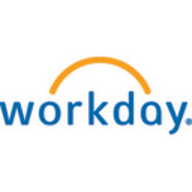

IBM Integration Bus and Workday Business Process Framework cater to different IT needs. IBM dominates in data integration capabilities, while Workday stands out in managing HR processes effectively.
Features: IBM Integration Bus offers high throughput for seamless connectivity between systems, supports a variety of protocols for flexible data movement, and ensures reliability with advanced error-handling capabilities. Workday Business Process Framework provides robust process automation, allows deep customization for specific HR processes, and enhances efficiency through comprehensive employee lifecycle management.
Ease of Deployment and Customer Service: IBM Integration Bus requires considerable technical expertise for setup but delivers extensive support and resources for troubleshooting. Workday offers a streamlined deployment process that is more user-friendly for HR teams and is complemented by responsive customer service, providing effective assistance during implementation and beyond.
Pricing and ROI: IBM Integration Bus entails higher initial costs, yet it promises substantial ROI through efficient handling of complex integrations over time. Workday Business Process Framework, while possibly seeming expensive at first, offers significant ROI by optimizing and automating HR operations, leading to noteworthy cost savings in managing human capital processes.


IBM Integration Bus is a market-leading software solution for application integration. It facilitates universal connectivity across enterprise systems, applications, and data, and offers a full range of integration capabilities on a flexible, secure, high-performance platform. You can use IBM Integration Bus to connect apps regardless of the communication formats or protocols they support. This connectivity enables interaction and data exchange among your varied applications in an adaptable, dynamic, and extensible infrastructure. IBM Integration Bus routes, transforms, and enriches messages from one location to another. It offers support for a wide range of functions, including routing, manipulating, filtering, enriching, monitoring, distribution, collection, correlation, and detection.
You can choose between IBM Integration Bus Advanced Edition, which is appropriate for a production setting, and IBM Integration Bus for Developers (Developer Edition), which is cost-free for development and testing purposes.
The interactions with IBM Integration Bus can be split into two categories:
IBM Integration Bus Benefits
There are many benefits to implementing IBM Integration Bus. Some of the biggest advantages the solution offers include:
Reviews from Real Users
IBM Integration Bus stands out among its competitors for a number of reasons. Two major ones are its robust data enrichment and its event correlation tool. PeerSpot users take note of the advantages of these features in their reviews:
Richard W., Chief Executive Officer at Responsiv, writes of the solution, “It reduces the need for programmers of consumer applications to understand where data is sourced, or how it is combined. It allows us to avoid the need for consumers to understand multiple API protocols and security arrangements, and in some circumstances can reduce the impact of systems being unavailable.
Another PeerSpot reviewer, an Integration Architect at a tech services company, notes, “One of the most valuable features is how seamless and easy to use this solution is. It's compatible with the cloud, it's a very seamless and fantastic tool.” He adds, “I rate this solution a nine out of ten.”
We monitor all Enterprise Service Bus (ESB) reviews to prevent fraudulent reviews and keep review quality high. We do not post reviews by company employees or direct competitors. We validate each review for authenticity via cross-reference with LinkedIn, and personal follow-up with the reviewer when necessary.